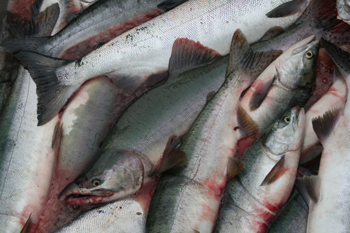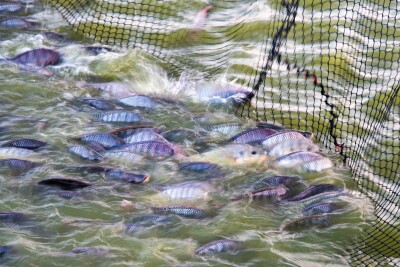As most of our readers know, last year was an epic one for Alaska's salmon fleets. This year, as the opening story in our May issue's Around the Coasts section describes, the West Coast is looking particularly strong, especially the Columbia River.
According to National Geographic, a new report from the Proceedings of the National Academy of Sciences is sounding the alarm about these high returns and calling it "an uncommon case of too many fish in the sea."
The report points to resource competition between pink salmon and other marine life, focusing on Bering Sea and Aleutian Islands colonies of seabirds. Noting that pink salmon has a two-year life cycle, alternating between high and low returns, the researchers found that in the salmon's down years, the breeding success of seabirds like kittiwakes and puffins is much higher.
Actually, the National Geographic article stated the reverse — that in the pinks' abundant years, seabirds have less success breeding.
So the question is: Which came first? The puffin or the fish eggs?
Let's follow the logic:
First, seabirds and pink salmon are in competition for the same sources of food. Second, ostensibly the pinks' numbers are rising because rising ocean temperatures have increased their food supply. So doesn't it stand to reason that in the off years of pink salmon returns, the seabirds are also faring better than they once were?
How would the salmon exclusively be benefiting from the increased supply of zooplankton, squid and Atka mackerel?
The researchers admit that "very little is known about how open ocean ecosystems work." This is another step toward understanding more about the wild BSAI ecosystem. We may indeed have to rethink the way we manage salmon hatcheries in Alaska. But the precautionary principle goes both ways. Just because pinks outcompete seabirds every other year does not mean seabird populations are unsustainably low.
In the meantime, we'll celebrate the success of pinks, perhaps over supper.
Photo: Southeast Alaska pinks packed for processing; Jessica Hathaway







